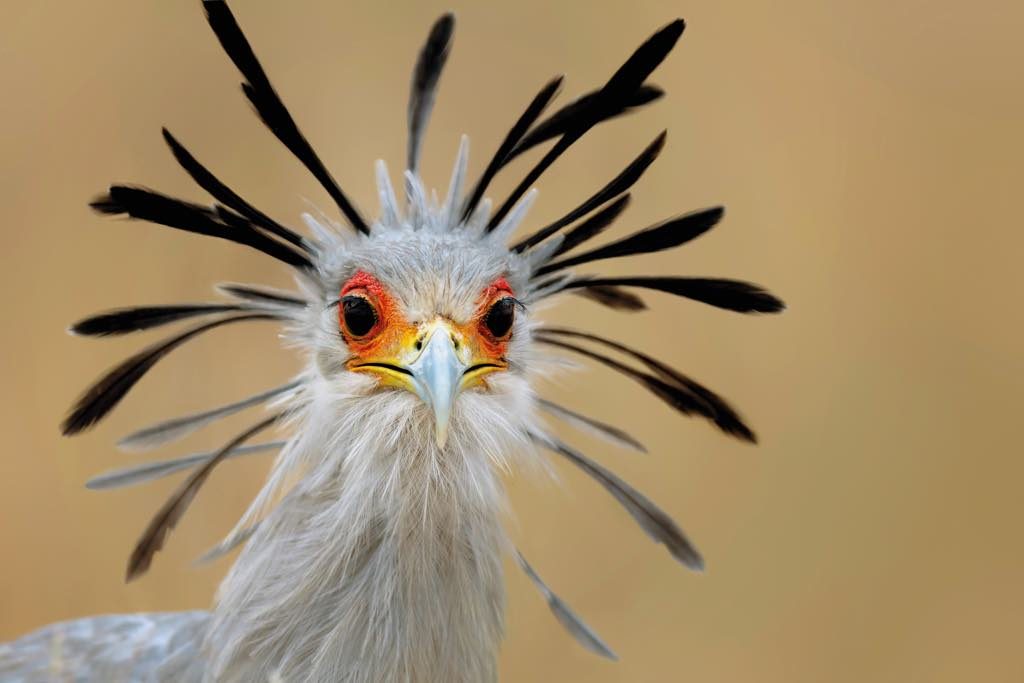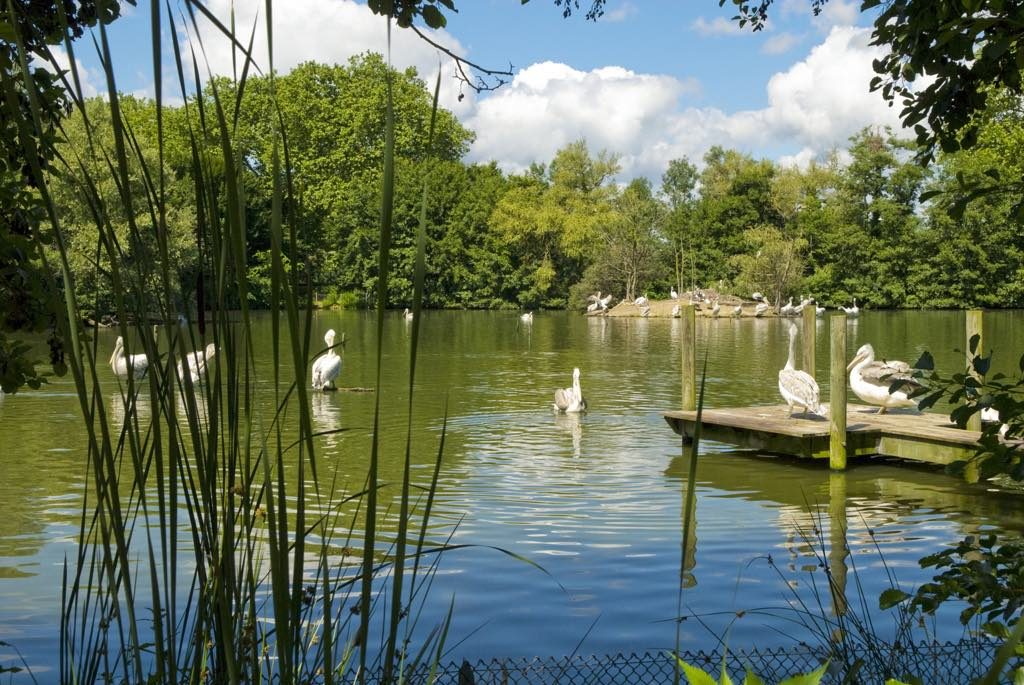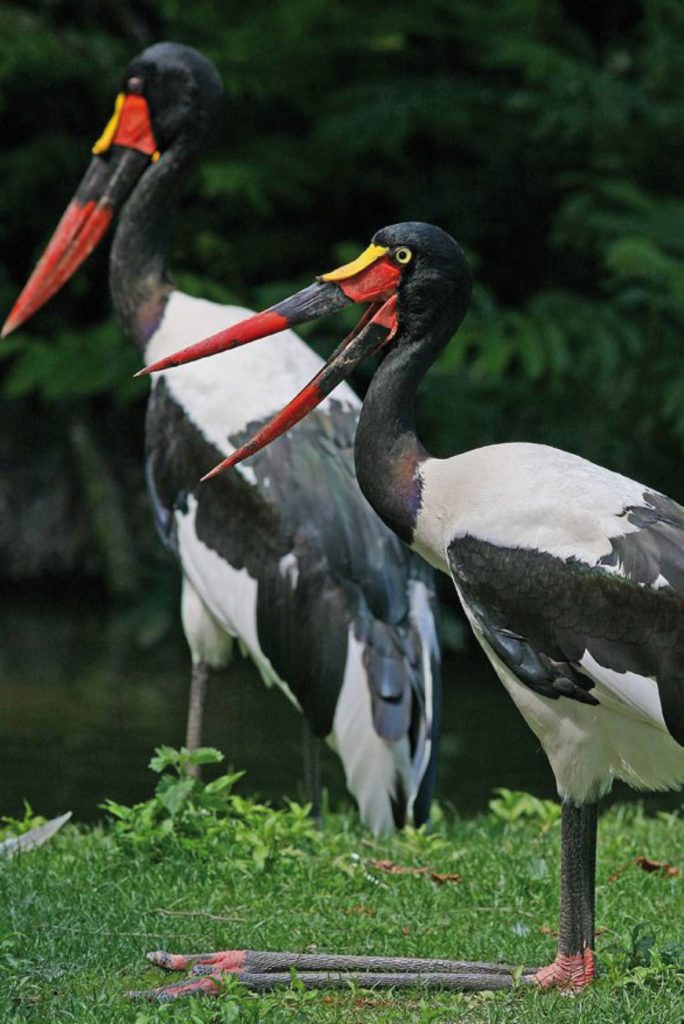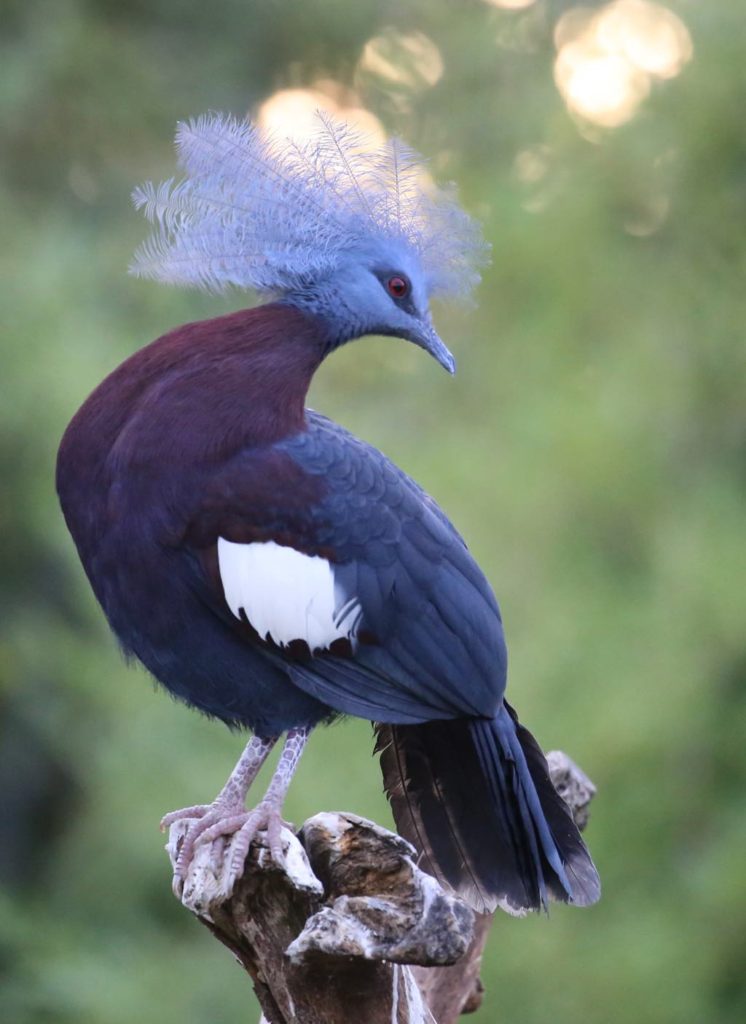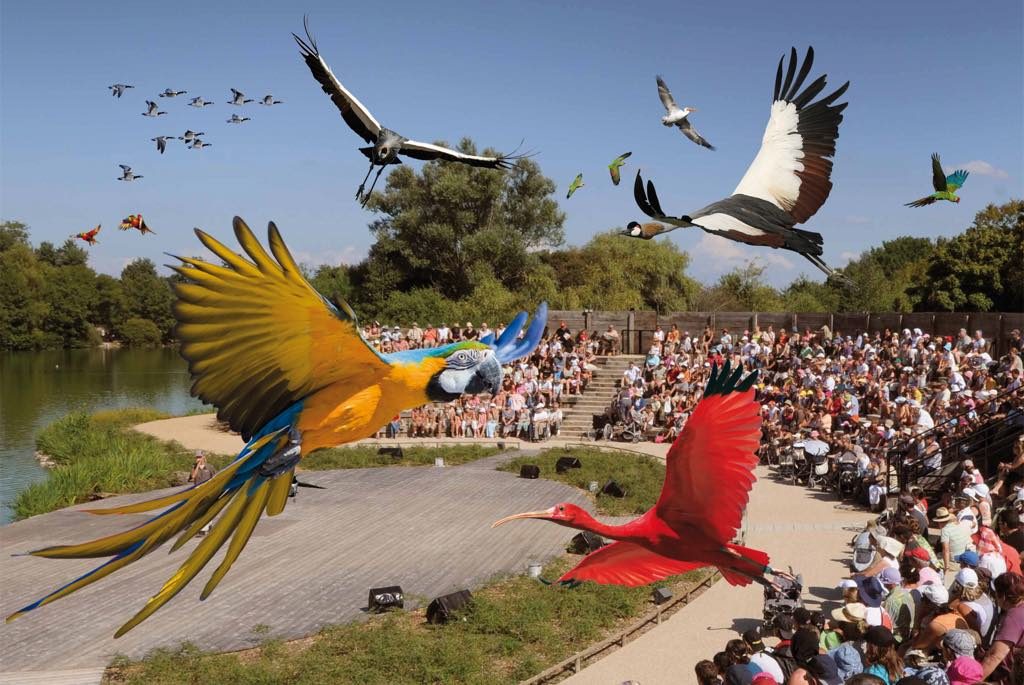The splendors of France are well known throughout the world: châteaux, vineyards, gorgeous scenery ranging from mountains to seashore, etc., but I doubt if many foreigners know about one treasure, the Parc des Oiseaux (Bird Park), one of the largest in Europe, in Villars-les-Dombes in the Ain department.
You don’t have to be a geeky birdwatcher to love this park; you just have to love birds of all sorts, particularly water birds like storks, herons and egrets. The region is a paradise for them with its network of rainwater pools, which have been dug by the inhabitants beginning as early as the 13th century. Since the region’s clay soil makes agriculture difficult, many landowners turned to fish (carp, pike, and tench) breeding to make their living.
The many storks, herons and egrets wheeling around my head and nesting in the tall treetops in May as I stood at the top of the 81-foot-high viewing tower were just the free-flying birds of the watery region, with its 10,000 ponds, which lies on the migratory corridor. Marvelous sound effects included the “blah, blah, blah” of the herons and the beak-clacking of the storks as they announced their arrival in the nest.
The park’s own “collection” numbers around 3,000 birds of 300 species, making it one of the best in the world in terms of the diversity of its birds. The latest addition to the park is a section featuring African birds (and some other animals, like ring-tailed lemurs).
Like the rest of the park – Oceania, South America, Europe and Asia are also represented – the new African habitat is landscaped to resemble the environments the birds come from and to allow the fewest possible barriers between the birds and the public. It is home to some 300 birds, most of them brilliantly colored and some of them passing strange, like the saddle-billed stork (Ephippiorhynchus senegalensis), with its long, pointy red-and-black beak, bright yellow frontal shield on the bill and yellow-ringed irises (the females only), or the Scheepmaker’s crowned pigeon (Goura scheepmakeri), all in beautiful shades of blue, with a sky-blue head and crest and red eyes.
The park, which is part of a larger nature reserve, participates in many breeding-in-captivity programs – it has had great success, for example, with Dalmatian pelicans (Pelecanus crispus) and is trying with Colibri (hummingbirds), secretarybirds (Sagittarius serpentarius; see photo at top of the page) and bearded vultures (Gypaetus barbatus) – and in conservation programs.
There is more than enough to see in the park to merit a full day’s visit, with four places to eat and the half-hour Birds in Flight show in the outdoor amphitheater in the afternoon. Some of the oddest-looking and most colorful birds have been trained since birth to appear on cue and show off certain natural talents. The Abyssinian ground hornbill (Bucorvus abyssinicus), for example, demonstrates how it catches snakes and beats them to death by smacking them against the ground.
While it always makes me a bit uncomfortable to see animals trained to entertain humans, I have to admit that the show was spectacular as the stunning birds flew in and out in choreographed patterns close to the heads of the spectators. Park veterinarian Éric Bureau explained that the birds’ natural inclinations are always respected.
Finally, English-speaking visitors will be happy to know that the informational signs throughout the park are bilingual (French/English).
Birdsong is not the only music heard in the park. Every summer, a series of concerts by well-known singers and musicians is held in the amphitheater. This year, the program was kicked off by Nolwenn Leroy and included Barbara Hendricks, Camille, Serge Lama, Bernard Lavilliers and Francis Cabrel. Click here for the full program.
Favorite
